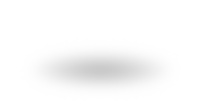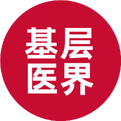Traditional Chinese herbal decoctions are one of the main treatment methods in Traditional Chinese Medicine (TCM). They adapt to TCM’s pattern differentiation and treatment principles, allowing for the comprehensive efficacy and characteristics of various herbal components to be fully utilized. The correct preparation and consumption methods of herbal decoctions are fundamental to ensuring the efficacy of the medicine. Improper decoction can hinder the extraction of effective components, while incorrect consumption can reduce the medicinal effects. Therefore, it is crucial for primary care physicians to master the preparation and consumption methods of herbal decoctions and provide correct guidance to patients.
So, how should herbal decoctions be prepared? How long should they be boiled? How should they be consumed? Are there any dietary restrictions?
Correct Preparation of Herbal Decoctions
Selection of Utensils
Generally, a clay pot is preferred for decocting herbs, with a purple clay pot being the best choice, followed by enamelware. However, metal utensils such as iron, aluminum, or copper pots should not be used.
Li Shizhen from the Ming Dynasty stated: “Avoid using copper and iron utensils for decocting herbs; silver or earthenware is preferable.” Tao Hongjing from the Liang Dynasty said: “Do not use iron utensils for warm decoctions.” This is because copper and iron utensils can chemically react with many effective components of herbal medicines. Although iron pots conduct heat quickly, their chemical properties are unstable and can react with various components in the herbs during decoction, affecting the efficacy of the herbal medicine. Prolonged decoction can impart a rusty taste to the liquid, potentially causing nausea and vomiting. Copper and tin pots can leach small amounts of copper and tin ions. Currently, some herbal components are still unclear, and the chemical reactions that occur when using copper and iron utensils are difficult to estimate, thus they should not be used.
Soaking Before Decoction
Soaking herbal pieces before decoction helps to fully extract effective components and shortens the decoction time, preventing the loss or destruction of some effective components due to prolonged boiling. Most herbs should be soaked in cold water for about 20-30 minutes. In hot summer temperatures, soaking time should not be too long to avoid spoilage. Generally, the water should cover the herbs by about one finger’s height.
Decoction Method
Traditionally, there are two types of fire used for decoction: gentle fire (wen huo) and strong fire (wu huo). Strong fire is used initially until boiling, then gentle fire is applied. Generally, start with strong fire, and after boiling, switch to gentle fire.
Additionally, the fire intensity should be adjusted according to the properties of the herbs and the required decoction time. For example, for herbs that release the exterior or purgative herbs, the decoction time should be short, with a strong fire and less water; for tonifying herbs, the decoction time should be longer, with gentle fire and slightly more water.
For diaphoretic and aromatic herbs (such as Su Ye (Perilla Leaf), Ju Hua (Chrysanthemum)), boil and then simmer for 10-15 minutes; for hard minerals and shells (such as Long Gu (Dragon Bone), Mu Li (Oyster Shell), Bie Jia (Soft-shelled Turtle)), first decoct for 15 minutes before adding other herbs; for sticky and nourishing herbs (such as Huang Qi (Astragalus), Dang Gui (Angelica), Shu Di Huang (Rehmannia)), boil and then simmer for about 1 hour; for precious herbs (such as Ren Shen (Ginseng), Ling Yang Jiao (Antelope Horn)), to avoid their effective components being absorbed by other herbs, decoct them separately for half an hour, filter out the liquid, and then combine with other herbs for decoction; for sticky herbs or those that may irritate the throat, or those that may cloud the decoction (such as Chi Shi Zhi (Halloysite), Xuan Fu Hua (Inula Flower), Che Qian Zi (Plantago Seed)), they should be wrapped in a cloth bag and decocted with other herbs; herbs that cannot be decocted (such as Ejiao (Donkey-hide Gelatin), honey) should be melted separately and added to the decoction after it is prepared, gently heated and stirred until dissolved before consumption.
In general, the decoction process consists of the following steps:
Step 1: Soak in cold water for 20-30 minutes.
Step 2: Begin the first decoction, starting with strong fire, and after boiling, switch to gentle fire for about 30 minutes.
Step 3: Strain the decoction, then decoct a second time. Step 4: After the second decoction, combine both decoctions, generally divided into two doses.
Note: If the instructions say “first decoct,” it should be decocted for about 30 minutes before adding the remaining herbs; if it says “add later,” the herbs should be added 5-10 minutes before finishing. If it says “wrap for decoction,” it should be wrapped in cloth before decocting. During the decoction process, try to minimize opening the lid to prevent the medicinal aroma from escaping. The second decoction generally only needs to boil for 15 minutes. It is particularly important to note that if the herbs are accidentally boiled dry or burnt, they should not be consumed, as this can produce many toxic substances that are harmful to the body.
Correct Consumption of Herbal Decoctions
Timing of Consumption
The timing of consumption should be determined based on the condition. Generally, for conditions affecting the heart or lungs, it is advisable to take the medicine after meals; for conditions affecting the bladder or intestines, it is better to take it before meals; for clearing heat and detoxifying herbs, laxatives, and tonics, it is best to take them on an empty stomach, as the stomach is empty and absorption is easier.
On an empty stomach: This refers to taking the medicine 1 hour before breakfast or 1 hour after dinner. Tonifying decoctions should be taken on an empty stomach in the morning for optimal absorption. Medicines for expelling parasites or treating blood vessel diseases in the limbs should also be taken on an empty stomach to allow for rapid intestinal absorption and maintain a high concentration for quick efficacy.
Before meals: Generally taken 30-60 minutes before meals. Medicines for treating liver and kidney deficiency, gastrointestinal diseases, and conditions below the waist should be taken before meals, as the empty stomach allows the medicine to reach the digestive tract more effectively, enhancing absorption without being diluted by food.
Between meals: This means taking medicine between meals to avoid food interference; medicines for treating spleen and stomach diseases should be taken at this time.
After meals: Generally taken 15-30 minutes after meals. This is suitable for conditions affecting the heart, lungs, or upper gastrointestinal tract, or for medicines that may irritate the digestive tract or have higher toxicity, to avoid rapid absorption and adverse reactions.
Before bed: Generally taken 15-30 minutes before sleep. Medicines for tonifying the heart and spleen, calming the spirit, promoting sleep, and delaying aging, as well as those for stagnation or chest oppression, should be taken lying down after consumption; for conditions affecting the head, mouth, or ears, lying down without a pillow is recommended; for conditions affecting the sides of the body, the sleeping position should be chosen based on the ascending or descending nature of the medicine.
Overnight consumption: This mainly refers to expelling parasites, taken once before bed and again on an empty stomach the next morning to ensure the parasites are expelled.
By mastering these methods, one can better utilize the medicinal properties for optimal therapeutic effects.
Note: Whether before or after meals, there should be a gap of about 1 hour between taking medicine and eating to avoid affecting the digestion and absorption of the medicine and its efficacy. For children or patients who have difficulty taking medicine due to vomiting, the medicine can be divided into multiple doses.
For children taking herbal decoctions, it is advisable to use a method of small, frequent doses, avoiding feeding during the hour before and after meals. Generally, it is suitable to administer doses after breakfast, lunch, and dinner, and before sleep, totaling four times. For infants, the daily dose can be divided into multiple small doses.
Special medications should be taken specially, such as digestive aids should be taken after a small amount of food; antiparasitic medicines should be taken with some sugar water to enhance efficacy; purgatives should be stopped immediately after a bowel movement; sedatives should be taken 2 hours before sleep; antimalarial medicines should be taken 2 hours before an attack. After taking diaphoretic and detoxifying medicines, avoid wind exposure and monitor for sweating, temperature, and pulse changes; after taking laxatives or antiparasitic medicines, observe bowel changes; menstrual regulation medicines should be taken before menstruation.
Temperature of Consumption
Herbal decoctions for general diseases should be taken warm; for special treatment needs, they should be taken according to specific methods.
For qi-regulating, blood-activating, blood-tonifying, cooling blood, and hemostatic medicines, they should be taken hot, as diaphoretic medicines must be taken hot to enhance their efficacy.
For detoxifying agents, they should be taken cold to facilitate the expulsion of toxins; taking them hot may increase toxicity. For clearing heat herbs, it is best to let them cool before consumption.
Dosage
Generally, a dose of 150 ml is appropriate, but there are exceptions for certain conditions. For patients with fever taking clearing heat and detoxifying agents, the liquid can be slightly increased to enhance efficacy; for thirst-quenching medicines, the amount should also be increased and can be taken frequently as a substitute for tea. Strong individuals can take larger doses, while weaker individuals, such as children and severely ill patients, should take smaller doses. Generally, for children under 1 year, the dose is 1/5 of the adult dose; for ages 1-3, it is 1/4; for ages 4-7, it is 1/3; for ages 8-10, it is 1/2; and for those over 10 years, the adult dose can be used.
Timing of Consumption
Generally, herbal decoctions should be taken twice daily, in the morning and evening, while clearing heat and detoxifying medicines can be taken 3-4 times daily. Replenishing medicines should be taken once in the morning and once in the evening, and diaphoretic medicines can be taken 2-3 additional times. The timing for taking herbal decoctions should be reasonably chosen based on the condition.
Dietary Restrictions
During the consumption of herbal medicines, dietary considerations should include avoiding raw, cold, sticky, and spicy foods, and there is no need to supplement with additional vitamins. Generally, patients with heat-related illnesses should avoid spicy, oily, and hard-to-digest foods and alcohol; those with cold-related illnesses should avoid raw and cold foods; patients with jaundice, allergic diseases, abscesses, tumors, and certain skin diseases should avoid fish, shrimp, and other strong-smelling foods and irritants; patients with edema should avoid salt; and those taking blood-tonifying medicines should avoid tea.
Correcting Misconceptions about Decoction and Consumption of Herbal Medicines
It is advocated to use herbal pieces rather than herbal extracts, to reveal the true nature of herbal decoctions.
Direct decoction is not recommended; herbs must be soaked in water for 15-30 minutes before decoction to facilitate the extraction of effective components and promote synergistic effects between the herbs.
Decoction should not be rushed; special decoction methods for certain herbal pieces must be followed according to traditional practices.
After taking the medicine, one should not drink water for at least half an hour to prevent dilution of the medicinal concentration and reduce efficacy.
For patients who find it difficult to drink herbal decoctions, such as children, they can be made into a syrup or herbal formula granules. However, when using herbal formula granules, the following method must be followed for noticeable effects: pour the granules into a container, add a small amount of warm water, stir into a paste with chopsticks, dissolve in warm water after 10 minutes, and seal the container for 20 minutes before use.
Source: Pharmacy Department (Herbal Medicine Room), Beijing Chaoyang Hospital, Capital Medical University, Xue Xinxin
WeChat ID: zgsqys-cyzj



